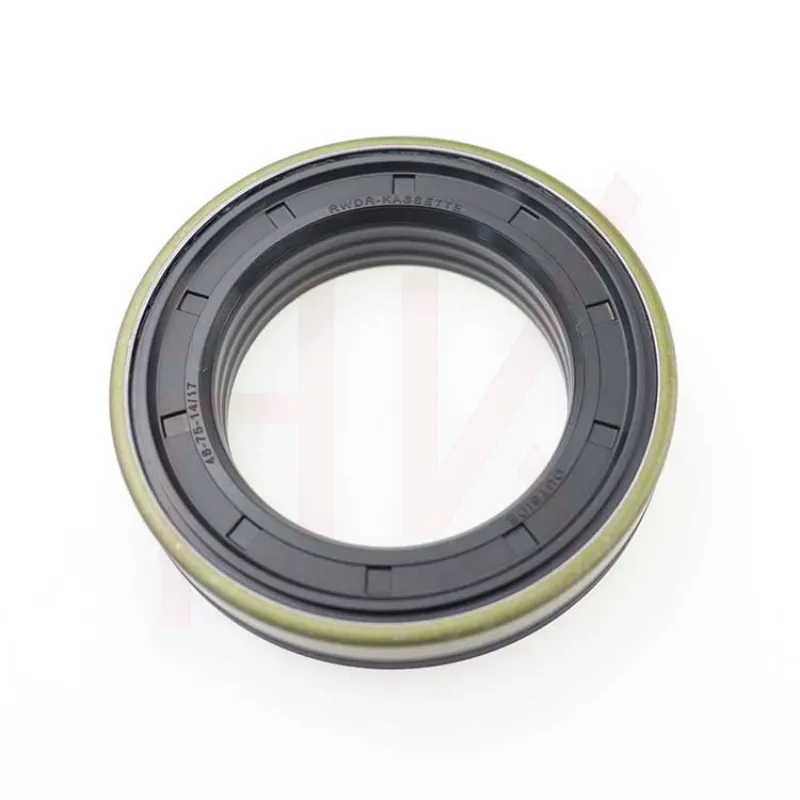Oktoba . 07, 2024 04:46 Back to list
what is the purpose of oil seal
The Purpose of Oil Seals
Oil seals, also known as grease seals or shaft seals, play a crucial role in various mechanical systems, particularly in engines, gearboxes, and other assemblies where lubrication is essential. Their primary purpose is to prevent the leakage of lubricants and to keep contaminants out of the machinery, ensuring smooth and efficient operation.
What is an Oil Seal?
An oil seal is a mechanical component designed to retain lubricating oil and other fluids within a designated area while preventing external contaminants like dirt, dust, and moisture from entering. Typically made from rubber, silicone, or other synthetic materials, oil seals consist of a circular elastomeric ring that fits snugly around a rotating shaft. The design allows them to withstand rotational forces while maintaining a tight seal.
Functionality of Oil Seals
The functionality of oil seals is primarily focused on fluid retention and protection
. Here are the key purposes they serve1. Preventing Lubricant Leakage In many mechanical systems, lubricants are vital for reducing friction between moving parts. An oil seal ensures that these lubricants remain contained within the assembly, preventing leakage that can lead to insufficient lubrication and potential damage to components.
2. Exclusion of Contaminants Any ingress of dirt, dust, or moisture can significantly hinder the performance and longevity of mechanical systems. Oil seals act as barriers, preventing such contaminants from entering the internal workings of engines and machinery, thereby safeguarding the integrity of the components.
3. Reducing Friction By maintaining appropriate lubricant levels and preventing contamination, oil seals help reduce friction between moving parts. This not only enhances the performance of machinery but also contributes to energy efficiency and reduced wear and tear.
4. Facilitating Operation in Harsh Environments Oil seals are often designed to withstand extreme temperatures, pressures, and other challenging environmental conditions. This makes them suitable for use in a wide range of applications, from automotive engines to industrial machinery.
what is the purpose of oil seal

Types of Oil Seals
There are several types of oil seals, each designed for specific applications and operating conditions
1. Single Lip Oil Seals These are the most common type, featuring a single lip that creates a seal against the shaft. They are widely used in applications where moderate sealing is required.
2. Double Lip Oil Seals These have two sealing lips, providing enhanced protection against leakage and contamination. They are ideal for environments where additional sealing is necessary.
3. Spring-Loaded Oil Seals These seals incorporate a spring mechanism to apply additional pressure against the shaft, ensuring a tighter seal. They are particularly beneficial in high-speed applications.
4. U-Cup Seals and V-Rings These seals are used in specific applications and provide unique sealing characteristics suited to particular operational demands.
Importance in Maintenance and Longevity
The condition of oil seals is critical to the overall health of mechanical systems. Regular inspection and timely replacement of deteriorated oil seals can prevent costly repairs and downtimes. Neglected seals can lead to lubricant leaks, increased friction, overheating, and eventual failure of the machinery.
In conclusion, oil seals are indispensable components in mechanical systems, serving to retain lubricants, keep contaminants at bay, and enhance the overall efficiency of machinery. Their effectiveness in fulfilling these roles underscores the importance of proper maintenance and timely replacement to ensure the longevity and reliable operation of various applications. Understanding the purpose and functionality of oil seals is essential for anyone involved in the maintenance and operation of mechanical systems.
-
TCN Oil Seal Metal Ring Reinforcement for Heavy Machinery
NewsJul.25,2025
-
Rotary Lip Seal Spring-Loaded Design for High-Speed Applications
NewsJul.25,2025
-
Hydraulic Cylinder Seals Polyurethane Material for High-Impact Jobs
NewsJul.25,2025
-
High Pressure Oil Seal Polyurethane Coating Wear Resistance
NewsJul.25,2025
-
Dust Proof Seal Double Lip Design for Construction Equipment
NewsJul.25,2025
-
Hub Seal Polyurethane Wear Resistance in Agricultural Vehicles
NewsJul.25,2025
-
The Trans-formative Journey of Wheel Hub Oil Seals
NewsJun.06,2025
Products categories
















